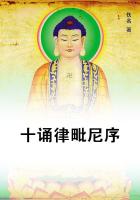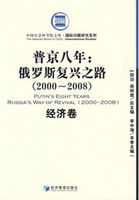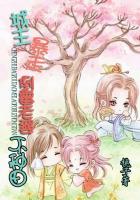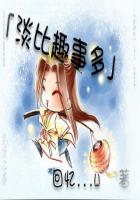So the poor, little, motherless waif lived among the old monks at the White Cross on the hill, thriving and growing apace until he had reached eleven or twelve years of age; a slender, fair-haired little fellow, with a strange, quiet serious manner.
"Poor little child!" Old Brother Benedict would sometimes say to the others, "poor little child! The troubles in which he was born must have broken his wits like a glass cup. What think ye he said to me to-day? 'Dear Brother Benedict,' said he, 'dost thou shave the hair off of the top of thy head so that the dear God may see thy thoughts the better?' Think of that now!" and the good old man shook with silent laughter.
When such talk came to the good Father Abbot's ears, he smiled quietly to himself. "It may be," said he, "that the wisdom of little children flies higher than our heavy wits can follow."
At least Otto was not slow with his studies, and Brother Emmanuel, who taught him his lessons, said more than once that, if his wits were cracked in other ways, they were sound enough in Latin.
Otto, in a quaint, simple way which belonged to him, was gentle and obedient to all. But there was one among the Brethren of St.
Michaelsburg whom he loved far above all the rest - Brother John, a poor half-witted fellow, of some twenty-five or thirty years of age. When a very little child, he had fallen from his nurse's arms and hurt his head, and as he grew up into boyhood, and showed that his wits had been addled by his fall, his family knew not what else to do with him, and so sent him off to the Monastery of St. Michaelsburg, where he lived his simple, witless life upon a sort of sufferance, as though he were a tame, harmless animal.
While Otto was still a little baby, he had been given into Brother John's care. Thereafter, and until Otto had grown old enough to care for himself, poor Brother John never left his little charge, night or day. Oftentimes the good Father Abbot, coming into the garden, where he loved to walk alone in his meditations, would find the poor, simple Brother sitting under the shade of the pear-tree, close to the bee-hives, rocking the little baby in his arms, singing strange, crazy songs to it, and gazing far away into the blue, empty sky with his curious, pale eyes.
Although, as Otto grew up into boyhood, his lessons and his tasks separated him from Brother John, the bond between them seemed to grow stronger rather than weaker. During the hours that Otto had for his own they were scarcely ever apart. Down in the vineyard, where the monks were gathering the grapes for the vintage, in the garden, or in the fields, the two were always seen together, either wandering hand in hand, or seated in some shady nook or corner.
But most of all they loved to lie up in the airy wooden belfry; the great gaping bell hanging darkly above them, the mouldering cross-beams glimmering far up under the dim shadows of the roof, where dwelt a great brown owl that, unfrightened at their familiar presence, stared down at them with his round, solemn eyes. Below them stretched the white walls of the garden, beyond them the vineyard, and beyond that again the far shining river, that seemed to Otto's mind to lead into wonder-land. There the two would lie upon the belfry floor by the hour, talking together of the strangest things.
"I saw the dear Angel Gabriel again yester morn," said Brother John.
"So!" says Otto, seriously; "and where was that?"
"It was out in the garden, in the old apple-tree," said Brother John. "I was walking there, and my wits were running around in the grass like a mouse. What heard I but a wonderful sound of singing, and it was like the hum of a great bee, only sweeter than honey. So I looked up into the tree, and there I saw two sparks. I thought at first that they were two stars that had fallen out of heaven; but what think you they were, little child?"
"I do not know," said Otto, breathlessly.
"They were angel's eyes," said Brother John; and he smiled in the strangest way, as he gazed up into the blue sky. "So I looked at the two sparks and felt happy, as one does in spring time when the cold weather is gone, and the warm sun shines, and the cuckoo sings again. Then, by-and-by, I saw the face to which the eyes belonged. First, it shone white and thin like the moon in the daylight; but it grew brighter and brighter, until it hurt one's eyes to look at it, as though it had been the blessed sun itself. Angel Gabriel's hand was as white as silver, and in it he held a green bough with blossoms, like those that grow on the thorn bush. As for his robe, it was all of one piece, and finer than the Father Abbot's linen, and shone beside like the sunlight on pure snow. So I knew from all these things that it was the blessed Angel Gabriel."
"What do they say about this tree, Brother John?" said he to me.
"They say it is dying, my Lord Angel," said I, "and that the gardener will bring a sharp axe and cut it down."
"'And what dost thou say about it, Brother John?' said he."
"'I also say yes, and that it is dying,' said I."
"At that he smiled until his face shone so bright that I had to shut my eyes."
"'Now I begin to believe, Brother John, that thou art as foolish as men say,' said he. 'Look, till I show thee.' And thereat I opened mine eyes again."
"Then Angel Gabriel touched the dead branches with the flowery twig that he held in his hand, and there was the dead wood all covered with green leaves, and fair blossoms and beautiful apples as yellow as gold. Each smelling more sweetly than a garden of flowers, and better to the taste than white bread and honey.
"'They are souls of the apples,' said the good Angel,' and they can never wither and die.'
"'Then I'll tell the gardener that he shall not cut the tree down,' said I."
"'No, no,' said the dear Gabriel, 'that will never do, for if the tree is not cut down here on the earth, it can never be planted in paradise.'
Here Brother John stopped short in his story, and began singing one of his crazy songs, as he gazed with his pale eyes far away into nothing at all.















